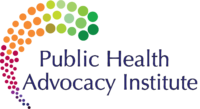The Public Health Advocacy Institute submitted comments to a proposed rule by the U.S. Department of Housing and Urban Development (“HUD”) to make its public housing smoke-free. The proposed rule would affect 1.1 million households, but leave 3.4 million other HUD-funded households unprotected. These include the agency’s tenant-based and project-based rental assistance.
PHAI argues that there is are several ways that HUD could expand the proposed protections:
- HUD maintains significant control over the development and operation of many mix financed properties, in part, through the Housing Assistance Payment Contracts. HUD has a legal right to change these contracts during the renewal process. Going smoke-free could simply become part of the eligibility requirements, for example, under the all HAP contract renewals going forward. Just like it currently prohibits marijuana use in all the housing it finances, HUD could require a smoke-free environment, too.
- There is widespread support for smoke-free policies among owners and property management companies of mixed-financed, affordable properties. In Massachusetts, some of the leading management companies of mixed financed affordable properties have made many, and in some cases all, of their properties smoke-free. Examples include Beacon Communities, Peabody Properties, and Corcoran Management.
- Surveys show that residents who are eligible for affordable housing prefer a smoke-free building, despite the high smoking rates in affordable housing.
- Smoke-free rules reduce maintenance costs, which would benefit the private owners and funders of affordable housing.
- The health and safety risk to residents exposed to drifting secondhand smoke is the same regardless of whether the resident lives in public housing or another type of affordable housing.
- Requiring smoke-free buildings for the use of tenant-based assistance would cause approximately 700,000 landlords to go smoke-free. This change would benefit all residents living at these properties, not just the voucher holders.
PHAI operates the Commonwealth of Massachusetts’s Smokefree Housing Program as well as the Public Health and Tobacco Policy Center, which provides services, including smoke-free housing legal and policy technical assistance, to entities funded by the New York State Bureau of Tobacco Control.
